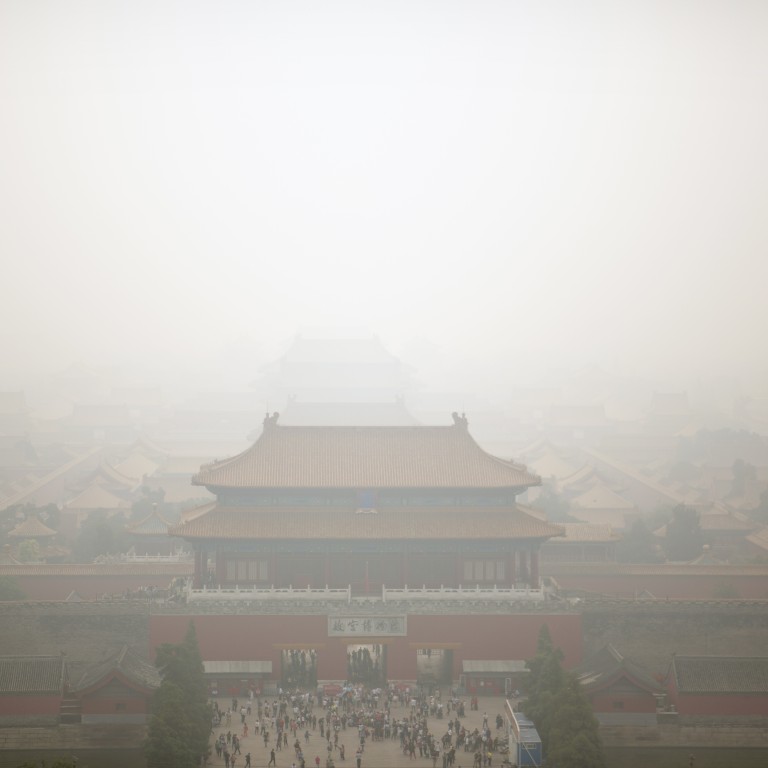
Clearing the air: Chinese leaders to consider pollution-cutting targets that actually might make a difference
Mainland met all emission-cutting goals in past 10 years, but air and water quality deteriorated
Beijing is likely to add new environmental protection targets, in addition to its traditional emissions-reduction goals, as top policymakers ponder five-year plans for 2016-2020, experts said ahead of a key Communist Party meeting.
The country has never failed to meet its emissions-reduction targets for air and water pollution included in its past two five-year plans - but still the state of its air and inland waterways has steadily deteriorated.
The new approach has grown out of mounting public anger over worsening smog, water and soil pollution, as well as widening distrust of the environmental authorities.
Even deputy environmental minister Pan Yue admitted, in a candid interview with Xinhua last month, that authorities needed a better approach to environmental governance and to respond more quickly to public concerns.
"Improvements in environmental quality should be the only gauge for our environmental protection efforts," Pan said.
A key meeting will be held by the party from October 26 to 29 to discuss the five-year plan on steering economic and social development.
While details of the new indicators remain sketchy, the environmental ministry has said more effort would be made to tackle air, water and soil pollution over the next five years.
Taking air quality improvement as an example, Tsinghua University professor Hu Angang has proposed including targets for the number of cities that meet national air quality standards for the next five years.
In 2014, only eight of 74 major cities in China met the air quality standards, according to official monitoring results. A year earlier, the number was only three.
Tonny Xie, a director of the secretariat of the Clean Air Alliance of China, said improved air quality would be "core" to pollution fighting efforts in the coming years, adding that some regions already had set targets to reduce levels of the superfine PM2.5 particulates considered most dangerous to people.
The ultimate goal of tackling air pollution is to protect public health
The central government set regional PM2.5 targets for the city clusters of Beijing-Tianjin -Hebei , the Yangtze River Delta and the Pearl River Delta in 2013 in response to the public outcry over the smog crisis. These targets will run till 2017. Similar targets could be rolled out for more cities and more pollutants.
"The ultimate goal of tackling air pollution is to protect public health," Xie said. "Setting emission-reduction targets should be the means to achieve air quality improvement."
Previous efforts to cut emissions met all of China's five-year goals but did not bring visibly improved air quality. The rapid surge in coal consumption to fuel breakneck industrial expansion wiped out any benefits brought by the emissions cuts, the environmental ministry has said.

